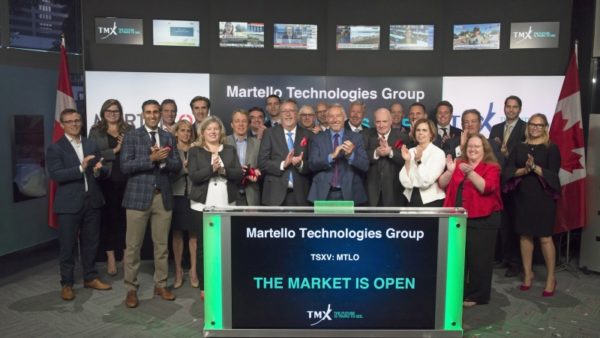Barr: “Inefficiency is really a polite way of saying there is low volume. If you look at what has happened in the Canadian markets over the past twelve years, it has been a resource market. People who would historically look for small cap opportunities, they have been making so much money on the resource side that there focus has remained there. But I think we are finally starting to see those types of investors come back to tech investing.”Quick, what’s your fiftieth best investment idea?
Stumped? Well so is Pender Capital Management’s Dave Barr, who thinks the whole notion is preposterous. In just a few short years, baby-faced Barr has leapfrogged the competition to become one of Canada’s top performing fund managers. He does it by concentrating his efforts on a few great names at a time, knowing their intrinsic value, and keeping a careful eye for potential catalysts.
A value guy through and through, Barr sees no issues in applying the teachings of Ben Graham and Warren Buffett to the world of small cap tech. He does, however, admit that plying your trade in the world of forgotten, downtrodden or simply misunderstood Canadian small caps requires the ability to balance the quantitative with the qualitative.
Cantech Letter’s Nick Waddell recently sat down with Barr to talk about the small Vancouver-based fund that is demanding Bay Street’s attention.
Dave, can you tell us how your fund came together and what the philosophy behind it is?
We ran a venture fund here in BC for a number of years and there were a lot of restrictions around that fund, because it was essentially labour sponsored. We had to invest in shares from treasury, BC-based companies with under a hundred employees. But when we were looking at ideas in the market the best ideas we had didn’t fit that mandate, so we looked at launching a fund to access those opportunities. We launched in June, 2009 with the Pender Small Cap Opportunities Fund.
How much money do you manage and how has the fund done since then?
Firmwide, we are at about $180-million in assets under management. The small cap fund is about $10-million today. Performance wise, we are at about a 19% annualized return since inception.
That’s pretty good…
Yeah, top one percentile of all mutual funds in Canada.
If we were to draw a Venn Diagram of your fund interest it appears you are at the intersections of tech, value and smallcap. Can you be a value investor and a small cap investor as well?
Absolutely. I think the most important thing about being a value investor is you need to be in an inefficient market where prices move quite dramatically. The whole premise behind value is figuring out what the intrinsic value of something is and buying it at significant discount and locking in your margin of safety. What we see in the tech world is, because there are a lot of growth investors who follow these types of companies, price shifts can be quite dramatic based on earnings flow and news and whatnot, where there arises a great opportunity to buy these things at a significant discount to what they are truly worth.
You mentioned inefficiencies. Have you seen inefficiencies and are you still seeing them in the Canadian tech sector?
Yes. Inefficiency is really a polite way of saying there is low volume. If you look at what has happened in the Canadian markets over the past twelve years, it has been a resource market. People who would historically look for small cap opportunities, they have been making so much money on the resource side that there focus has remained there. But I think we are finally starting to see those types of investors come back to tech investing. But the shift hasn’t been dramatic yet.
We are seeing an unprecedented number of buyouts in Canadian tech, which implies that the US firms buying them think they are undervalued. Do you think the number one reason they are undervalued is a lack of interest, which translates into a lack of volume?
Yes. If you look at the structure of the Canadian asset management industry, how many guys out there are just trying to meet the benchmark? The benchmark has its weightings and the tech sector here is a very small part of that. So if you are managing to a benchmark and you’ve got a billion dollar fund, you’ve got what, $16-million to invest in technology? What are you going to invest in? You’re probably just going to own RIM or CGI or one of the other companies with a market cap over a billion. You’re not going to go that deep. The institutional guys aren’t going to touch the tech sector, retail advisors have just made so much money from the resource sector, and they’re not coming back to technology yet. So who does that leave to invest? It takes a lot of time and energy to understand and fund these companies. And the main sources of capital just aren’t interested yet. Barr: “I can invest outside the technology sector but the reality is I have a competitive advantage in understanding technology companies, and there are just too many fantastic opportunities out there.”
Pender is one of the few funds that is set up to capture these companies that may slip between the cracks…
Agreed. I can invest outside the technology sector but the reality is I have a competitive advantage in understanding technology companies, and there are just too many fantastic opportunities out there. Companies are cheap. You mention companies getting taken out at a 50 to a 100% premium. Well, that is just classic value investing. You look at a Miranda, you look at a Gennum, they were trading at a 50% margin of safety, that’s to say a 50% discount to intrinsic value. If a strategic investor comes along, they will pay the full price, as we have seen over and over. Margin of safety translates into return on investment.
I guess you have had to really develop qualitative screens over top of your quantitative analysis?
Yeah, especially because we invest in small caps. In the small cap world one bad decision by management can blow up a company. So you really have to be comfortable with the management team, and know they have the shareholders best interests at heart.
You have a strong opinion about the number of positions that you hold. Can you talk about that a bit?
I run 25 to 35 names in the portfolio. With small cap companies, especially tech where there are a lot of moving parts and you have to understand the dynamics of the industry, you don’t have enough time to find a hundred good ideas, and if you are trying to find a hundred ideas you are probably spreading yourself a little too thin. I don’t want to invest in my fiftieth best idea. I think the best way to reduce risk in a portfolio is having an informational advantage over other investors. You hear this a lot when you get into the stories of investors like Einhorn or Ackman who always ask themselves when they are buying stock, “Why is someone selling me this? What do they know that I don’t?” In the small cap world I think you can still do that today.
These buyouts have become one possibility for a liquidity event, and one way to boost your performance. But you have owned names almost from the inception of your fund that have performed well without being bought out. Perhaps we could talk a bit about one of them.
Absolute Software is one that I have held for quite a while and one I think trades at a 50% discount to what a strategic buyer would pay for it. If you post good numbers and you do it consistently and you message the market you will attract investors and there are some great examples out there of companies like that, such as Catamaran, Descartes, or Wi-LAN. I think Absolute is very much on that train. When you are looking at technology companies that are trying to build value for the long term, you look at Absolute, which has a proven management team that has a significant share position, so they are able to fend off potential hostile or opportunistic takeovers when the stock is trading cheap. Having a strong shareholder base is very important. When you look at the tech sector you can kind of put together a list of companies with strong or weak shareholders bases so you have an idea what a likely catalyst might be.
What was the last name you added, and why?
Lorex Technologies. Lorex makes digital surveillance cameras, I found them while doing research on Avigilon. Lorex ran into trouble five years ago, the CEO passed away suddenly, a new CEO came in and wasn’t quite doing the job. So the former CEO’s brother came in and made dramatic improvements to the business. He got revenue to $70-million, yet the stock was still trading at four times earnings. Where Avigilon has an enterprise model, Lorex is a retail play. They have agreements with Costco, Wal-Mart and other big retailers. If you look at Avigilon vs. Lorex over the past year, you will see the same revenue and same revenue growth rate, but Avigilon traded at 30 times EBITDA, Lorex three times. What happened with Lorex is there was a capitulation from shareholders. They were tired of being burned. And this happens with probably 90% of the stocks we buy.
Editors Note: Just weeks after we met with Dave Barr, Lorex Technologies was purchased by FLIR Systems for $1.30 a share, a 38% premium to where Pender bought the stock. The buyout was the 9th Pender has had in the Pender Small Cap Opportunities Fund this year alone.
__________________________
_______________________________
Leave a Reply
You must be logged in to post a comment.





 Share
Share Tweet
Tweet Share
Share




Comment